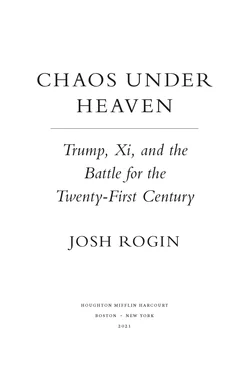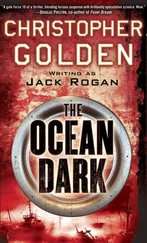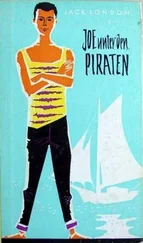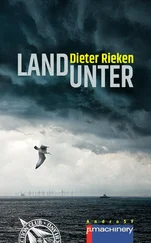The column I published on May 15 for the Washington Post got a lot of attention. I was booked on CNN’s New Day the next morning at six o’clock to talk about it with Chris Cuomo and Derek Scissors, resident scholar at the American Enterprise Institute, who told me Trump “just got blackmailed” by Xi. Trump saw the segment and tweeted that my reporting was fake news. “The Washington Post and CNN have typically written false stories about our trade negotiations with China . . . We have not seen China’s demands yet,” the president tweeted.
Trump didn’t realize that it was just one story, me writing for the Washington Post and me talking about it on CNN. But more importantly, I had the document of demands. I knew for a fact that US officials had seen it. The president of the United States was calling me a liar. Later that day, Ross confirmed that the list of demands did exist and he had seen it.
That same week, several stories started leaking to the press about the US delegation’s trip to Beijing, all of them disparaging Navarro. In Beijing, before the key meeting with Liu, Mnuchin decided last minute to change the format to a one-on-one, meaning Lighthizer and Navarro couldn’t come in. Navarro was furious and the two had a shouting match within earshot of the Chinese officials.
White House officials began whispering in reporters’ ears that Navarro had acted strangely on the trip, only his second ever in his life to China. He insisted on keeping his luggage with him at all times. He wanted to sleep inside the embassy because he feared hotel surveillance. He rudely refused to eat the food served to him in official functions. That sort of stuff. White House officials opposed to Navarro even started looking for reasons to file workplace complaints about him. They initiated a process to interview anyone who worked for him to try to find cause to push him out. The investigation ultimately never went anywhere.
Game On
Despite all that drama, Mnuchin wasn’t able to quickly strike a small deal that would be sufficient enough to convince Trump to hold off on tariffs. The trade war was going forward, whether he liked it or not.
On May 20, after meeting with his Chinese counterparts, Mnuchin announced that the trade war was “on hold,” because the two sides had made substantial progress, vitiating the need for actually going through with the tariff threats. Nine days later, the White House released a statement totally contradicting Mnuchin and promising the first tariffs would be announced on June 15. That day, the Office of the US Trade Representative updated their list of Chinese tariff targets and Beijing did the same. On July 6, the first $34 billion of US tariffs went into effect and China retaliated in kind. Beijing targeted industries in states that make up Trump’s base. He didn’t like that at all, and so he ordered the Office of the US Trade Representative to come up with a list of $200 billion worth of potential tariffs on Chinese goods. The trade war was on, and it was escalating quickly.
On July 6, the first $50 billion of tariffs went into effect, and it escalated from there. Before that month was over, Trump was publicly threatening to tariff all $500 billion of imports from China. He also pledged billions to bail out US farmers hit hard by the Chinese retaliatory measures. Throughout August and September, relations soured as threats of tariffs and new rounds of tariffs came about every couple of weeks.
These looked like terribly stormy weather conditions for US relations with China, and most of the public focused on these twists and turns. But these conditions were also the result of the changing climate. The national security hardliners were ready to capitalize on that shifting climate in a major way. They had a plan and a champion to carry it out—Vice President Mike Pence.
The Hardliners Strike Back
The national security officials in the Trump administration were largely cut out of the trade negotiations, by design. But that didn’t mean they were sitting still on China. By the summer of 2018, Mike Pompeo had replaced Rex Tillerson as secretary of state. John Bolton had consolidated control at the National Security Council (NSC). And in June, as the White House’s announcement of impending tariffs on Chinese goods was still resounding around the globe, James Mattis became the first defense secretary under Trump to visit Beijing.
On his way to China, Mattis made a big show of stopping in Hawaii to formally announce that the United States was changing the name of US Pacific Command to US Indo-Pacific Command. He also attended the Shangri-La Dialogue and announced that the United States had a new Indo-Pacific strategy. This was one of the first visible demonstrations of the classified and unclassified Indo-Pacific strategic framework documents Matt Pottinger had helped spearhead in 2017. Now, there was a defense-specific strategy to go with it and Mattis was rolling it out to the region.
Mattis had never been to China, having spent his four-decade career in the Marines mostly in the Middle East. He didn’t understand the Chinese system. For example, Mattis was very impressed with his meeting with Chinese defense minister Wei Fenghe, but he didn’t get that the defense minister in the Chinese system is a relatively weak official. That’s not his direct counterpart because the systems are different. His staff had to convince him to meet with air force general Xu Qiliang, who, as the senior military member of the Chinese Communist Party (CCP) Central Military Commission, holds a lot more actual power than the defense minister.
Xu drained the clock, taking up the whole meeting lecturing Mattis on the one hundred years of Chinese humiliation, and didn’t offer much happy talk about win-win cooperation. Mattis didn’t like that meeting as much, but the staff felt like he at least had a more honest picture of who was really leading China and what they were saying, not the barbarian handlers they put forward.
When he met with Xi Jinping, Mattis told him that he wanted to have a relationship starting from a position of clarity and objective truth, so that the United States and China could operate in a competitive environment without stumbling into a conflict neither side wanted. “We can do what the Europeans stupidly did twice in the twentieth century and destroy ourselves,” he told Xi, “or we can sit down and talk about confidence-building measures, keeping operations safe, and the like.”
Mattis, unlike most Trump officials, had a real reputation as a military leader in foreign capitals that brought with it respect—and he used that to drive home his point. “Hey, if you want to fight, great. I know how to do it. I’m pretty good at it,” Mattis said to Xi. “But we shouldn’t be so stupid and we shouldn’t underestimate the huge costs for both of us.”
Mattis wasn’t the only Trump official trying to convince China’s leaders that the new frame of the relationship would be competition, whether they liked it or not. Pottinger made multiple trips to Beijing in 2017 and early 2018 to brief Chinese officials on what these new policy documents meant and what Beijing should expect from the Trump administration—namely, a harder line.
Of course, the Chinese leaders at this point trusted the people in Trump’s inner circle with whom they by now enjoyed fairly established relationships, more than they did the boyish-looking staffer Matt Pottinger. But in a September event at the Chinese embassy, Pottinger got his message through by giving a speech partially in Chinese. He argued that Confucius himself would have wanted the United States and China to speak honestly about the competition they were in. “We in the Trump administration have updated our China policy, to bring the concept of competition to the forefront,” he said, pointing back to the National Security Strategy he helped write. “To us, this was really an example of what Confucius called the ‘Rectification of names.’”
Читать дальше











